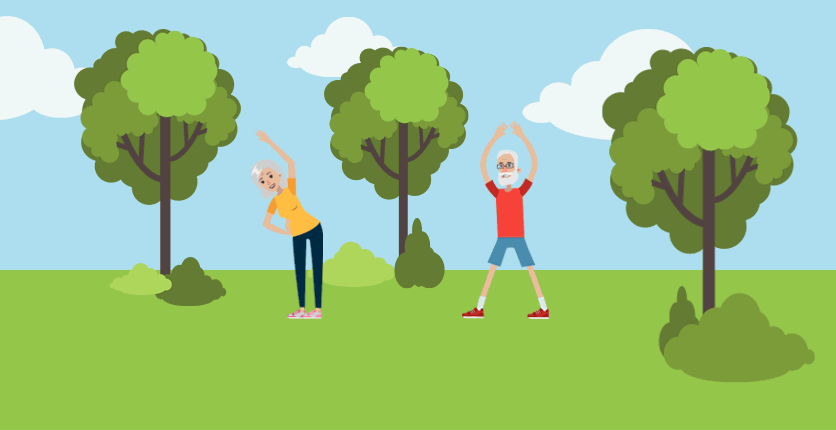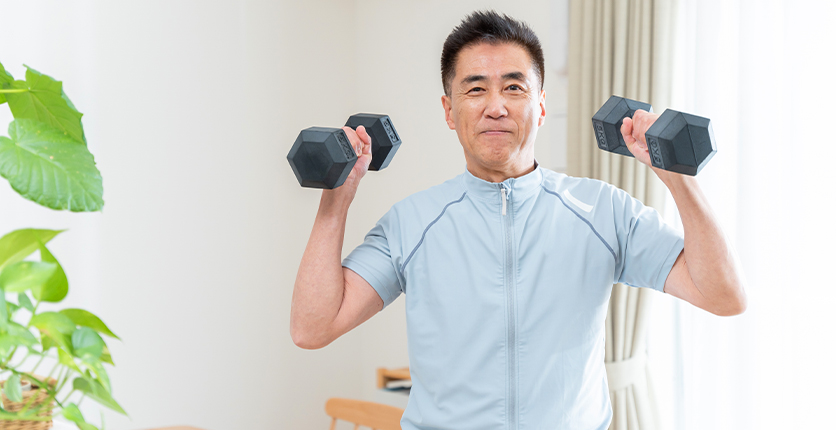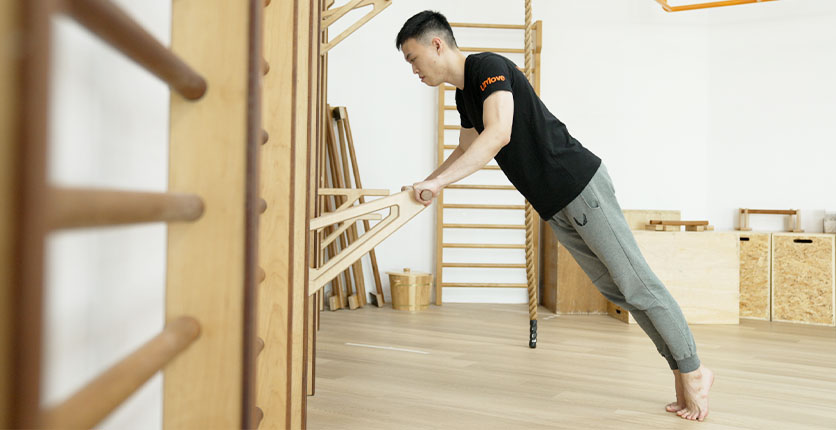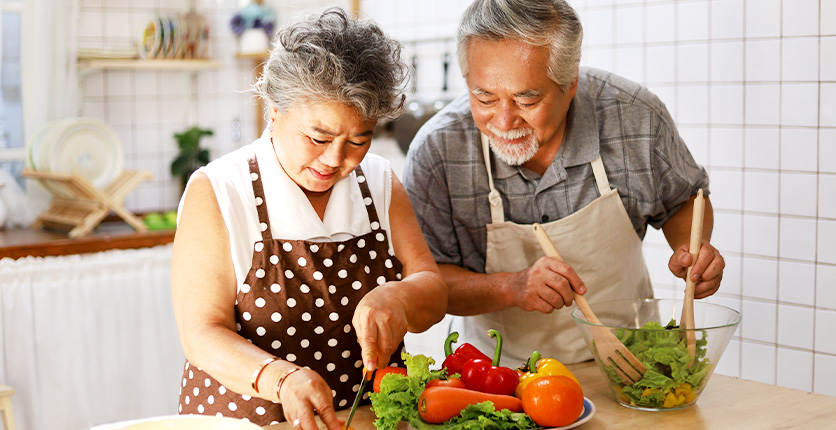Our family members aged 65 and up can benefit physically, emotionally and socially from regular physical activity. Here’s how, says Dr Chan Kin Ming, a geriatrician at Chan KM Geriatric & Medical Clinic.
Q: How can exercise benefit seniors’ physical health?
Dr Chan: Many elderly people think that exercising at their age is no longer useful or effective, or even harmful. But that’s not true. Exercise offers benefits no matter how old you are.
Q: What kinds of exercises are suitable for seniors?
Dr Chan:
– Endurance or aerobic activities like brisk walking, dancing and swimming are good for the heart.
– Strength training activities like lifting weights or working with resistance bands help to build and maintain muscle mass, tone and strength.
– Balance exercises help the elderly person maintain their sense of balance and reduce the risk of falls and instability. An example would be trying to keep your balance while standing on one leg.
– Flexibility exercises such as stretching, and neck, shoulder and ankle rotations are good for maintaining suppleness of the joints.
– Strengthening or strength-training exercises such as those that use springs, bands or weights, help to maintain bone and muscle mass, which can prevent osteoporosis and sarcopenia (muscle loss associated with aging). If you don’t have these items, you can do simple squat-and-stand movements for a few minutes every day.

Q: Can regular physical activity boost seniors’ emotional wellbeing?
Dr Chan: Exercise releases feel-good chemicals called endorphins into the system. Plus, it helps you sleep better at night, relieves stress and anxiety, prevents depression, improves self-esteem, and elevates and stabilises your mood. Even five minutes of aerobic exercise has been shown to alleviate anxiety in elderly people.
Activities that have social aspects to it, such as ballroom dancing or bowling, are a good way to have fun. They can certainly help boost emotional wellbeing and self-esteem as they get seniors out of the house and interacting with others.
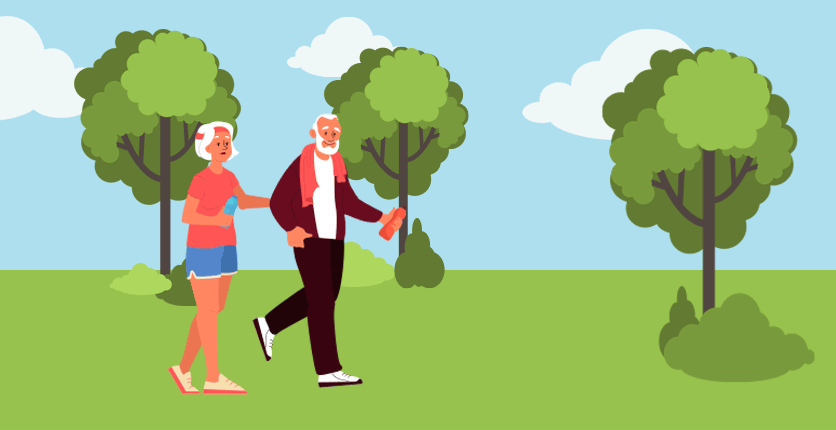
Q: How much exercise does the average senior need per week to stay healthy?
Dr Chan: We encourage adults aged 65 years and older to get at least 30 minutes of moderate-intensity aerobic exercise (like brisk walking) a day, five days a week. If you have a pre-existing chronic condition and cannot achieve that, then do what you can. Even a little physical activity is better than nothing. Don’t just stick to one type of activity, though. Do a bit of everything – aerobic, strength, balance and flexibility exercises.
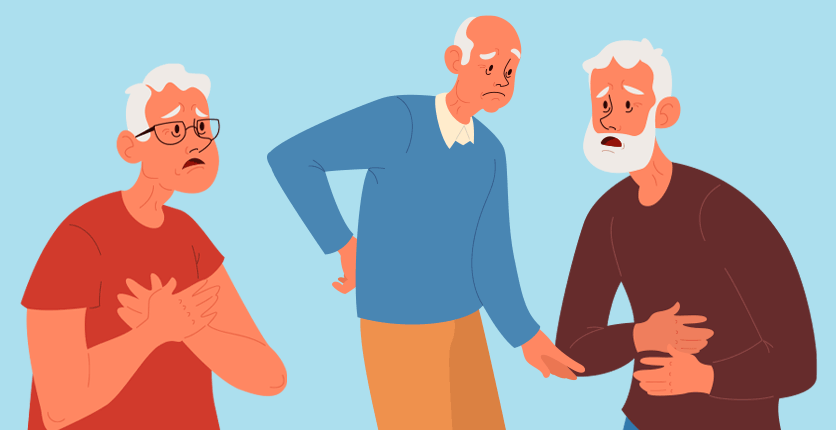
Q: Is exercise suitable for elderly people who are frail or suffer from chronic health conditions?
Dr Chan: Even if you can only manage a little exercise, you will still reap the benefits. If you have a history of heart attack or heart failure, exercise can improve your heart health. Physical activity is also good for your lungs as it improves your breathing and reduces phlegm accumulation, which is a common problem with elderly people.
Furthermore, when your muscles and joints are strong, you’re less likely to experience body aches and pain. This in turn improves your quality of life and sense of wellbeing. Seniors who exercise also reduce their risk of falls.
Finally, exercise improves the appetite, which leads to a better nutritional status and hence, a stronger resistance against infections.
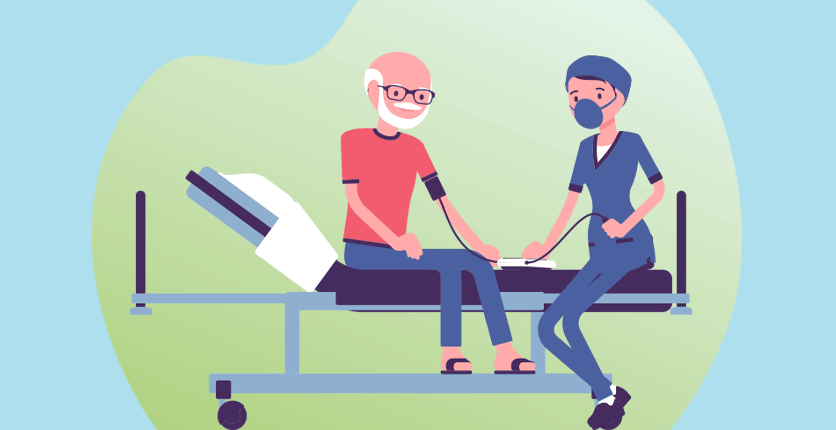
Q: What should seniors be careful about when exercising?
Dr Chan: If you don’t exercise regularly and want to start, seek medical advice first. Your doctor will be able to recommend a suitable programme for you, based on your needs, health status and ability.
While exercising, be aware of your limits, because over-exertion or doing the wrong activities may actually be harmful or cause injuries. For instance, if you have poor eyesight, exercise indoors or with a friend.
Remember to warm up and stretch before exercising and to finish the activity with light stretches to cool down. Stay hydrated and wear appropriate attire. If you feel uncomfortable during the activity, stop and rest until the discomfort has abated. If your muscles still ache four hours after the activity, you probably over-exerted yourself.
Check your feet after exercising, especially if you are diabetic. Look for blisters or abrasions and make sure these heal properly. If you’re diabetic, be aware of the risk of low blood glucose during or after exercise. Time the activity for one to three hours after a meal, and carry some sweets with you in case you do experience low blood glucose. Get advice from your doctor if you’re on insulin injections.
Seniors, Get Active And Have Fun At SAFRA*
Social ballroom dancing at SAFRA Tampines: Learn to do the Waltz, Tango and Slow Foxtrot, plus Latin dances like the Rumba, Jive and Salsa.
Bowling at SuperBowl at SAFRA Mount Faber, Toa Payoh and Tampines: Grab your friends and enjoy a few games on a weekday at a special rate.
Taekwondonomics at SAFRA Jurong, Punggol and Toa Payoh: Pick up self-defence skills under world-class and national athletes and get fit at the same time.
*Some facilities and activities are temporarily closed, do check our website for the latest updates.
Do you have questions about exercise for seniors? Send them to magnsman@sph.com.sg!
